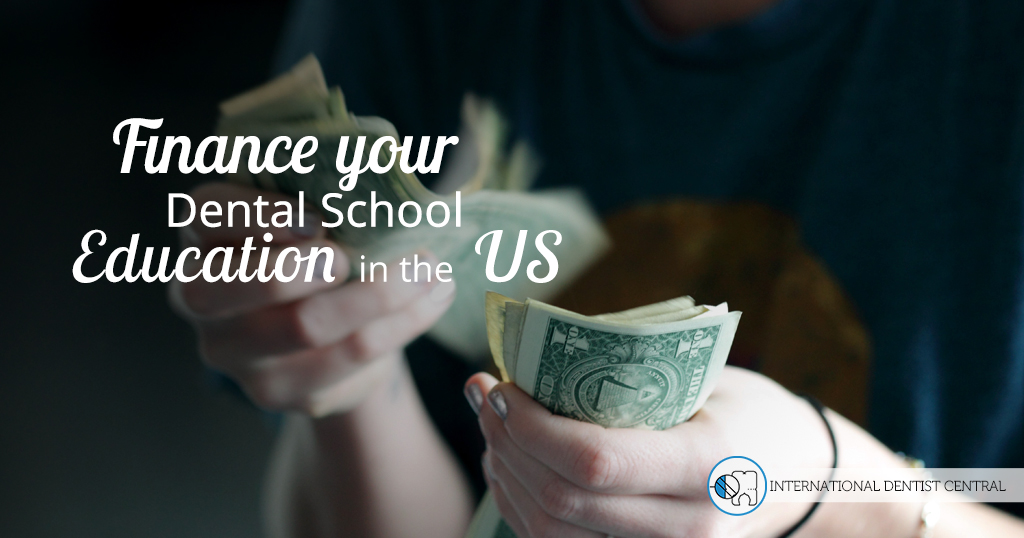Want to learn more information about how to finance your dental education in the US? You don’t want to ignore the financial implications of paying for the program itself after going through the grueling process of admission into a US dental school. Everything in the process of becoming a licensed dentist in the US costs more than we’d like to spend. This is why you need proper planning and a well- rounded knowledge to help you make the right investments!
Financing dental education in US as an international student
Like many of your fellow colleagues, you may need financial aid to help you pay for school, and that likely means taking out student loans. You may want to research about scholarships and financial aid from your school or seek financial funds from your family. International students are usually excluded from grants and scholarships since they are mostly required to be US citizens or permanent residents to be eligible to apply for these. Even after exhausting all your options, there could be a funding gap and this is where student loans usually come in.
There are different financial options available for getting a student loan. Here are two options for you:
1. Student Loans for U.S. Citizens and Permanent residents
You are eligible to apply for student loans if you are a green card holder or a U.S. citizen. This type of loan is funded by the federal government; therefore interest rates are low and flexible repayment/deferment options are available. Students can directly apply for this loan since they do not require a credit check or a co-signer. The disadvantage is that the federal loan might not cover the entire expenses and there are limited funds available each year by FAFSA. (Free Application for Federal Student Aid)
2. Student Loans for International Students on Visa
Private loans are the most common option available for international students, as well as the U.S. citizens/permanent residents whose federal loans may not cover the entire expenses. You can borrow the full cost of attendance after determining the maximum loan amount from your dental school. Usually, a co-signer should apply for private loans. The interest will depend on the credit-worthiness of your co-signer. Private loans usually have a higher interest rate and less repayment assistance options in comparison to federal loans.

Other things you should know to finance your dental education
Co-signers
International students have to find co-signers in order for them to apply for student loans for financing dental educations. A co-signer must repay the loan you took if you fail to pay it. The co-signor must also be a permanent US resident and should have good credit. He/she must have lived in the US at least for the past two years prior to your loan application. Most students would choose a close friend or relative to assist them in their loans.
Repayment of loans
The repayment of your loan depends on the loan option you choose. This is a major feature in your student loans, since most international students are unable to work while studying in the US. You will have to provide an estimate of how much your monthly payments will be and when will your payments begin. Additionally, you will also have to provide information on how long you will be able to defer paying back the loan. The repayment period takes from 10-25 years, the bigger your loan is, the longer your repayment period will be.
Here are a few repayment plan options:
- Full Deferral – Students have the chance to put back their payment up to 6 months after their graduation as long as their full-time status is maintained. It is also possible for students to defer payments for a maximum of 4 years.
- Interest Only – With this option, international students will only pay the interest while they’re studying. This could be up to 4 consecutive years, and they can defer the principal 45 days after they have graduated or if they drop their course load to part-time.
- Immediate Repayment – After the distribution of the loan, the payments on both interest and principal are due immediately.
That was a general idea on how to finance your education in the US as an international dentist. All in all, you should have a lot of research to get a complete information on this topic. You may also have to seek advice from the people who have been through the process.
We hope that you will be able to come up with a good decision in order to finance your education. If you have tips to share with your fellow international dentists, do not hesitate to leave them down below!
Related articles:




Leave A Comment